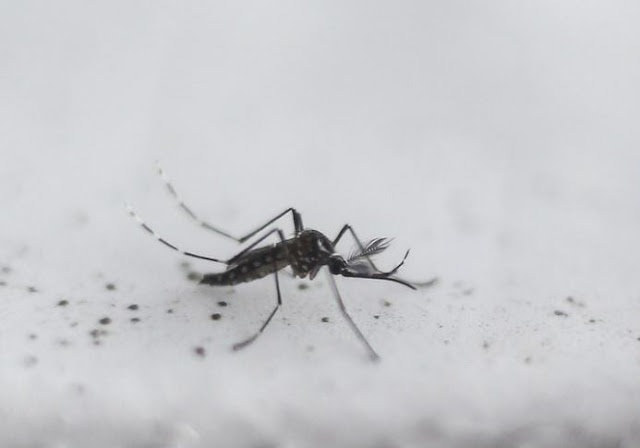(Teen Vogue)
In this op-ed, Margaret Wurth explains how Zika impacts teen girls.
Teenage girls are the forgotten victims of Brazil’s Zika outbreak. The virus, transmitted by mosquitos, leaves many babies of mothers infected during pregnancy with lifelong disabilities that require constant care. Because teenage girls in Brazil don’t always get the information they need to prevent pregnancy and have very limited access to abortion in the case of unplanned pregnancy, many of the mothers of children affected by Zika are very young.
One muggy October evening last fall in Paraíba State, Brazil, a round-faced 17-year-old girl—let’s call her Thaís—handed off her 8-month-old daughter to her mother, and turned to talk to me. Thaís gave birth to a baby with Zika syndrome in January 2016, just two months after authorities in Brazil started tracking an unprecedented increase in the number of infants born with microcephaly, a condition in which the baby’s head is smaller than expected, often accompanied by problems with brain development.
As we sat in the living room of the modest home she shares with her partner, she told me her pregnancy was not planned. Like many people infected with Zika, Thaís never had symptoms of the virus during her pregnancy. However, she lives in a community with longstanding water and sanitation problems. Thaís and her partner only have access to tap water three days a week, so they store water in huge containers.
Mosquitos can breed in stored water if it is not properly covered and maintained. Thaís was careful to cover her water containers, but she lived near an open sewage channel full of dirty, standing water—ideal conditions for mosquito breeding.
“We have a lot of mosquitos,” she told me. “The sewage is not covered, and at night it’s full of mosquitos.” She did not know she had been infected with Zika until after the baby was born. Children born with Zika syndrome, like Thaís’s daughter, often have seizures, difficulty eating, problems with vision and hearing, and other complications.
Zika has already spread to the United States. Mosquitos in parts of Florida and Texas carry the virus and can transmit it to humans. It can also be transmitted sexually, in the US often by people returning from trips to Zika-affected countries. Brazil’s Zika crisis showed just how quickly the virus can spread in the right conditions. The outbreak in Brazil is linked to the birth of thousands of children with Zika syndrome.
Thaís stopped going to school when her daughter was born, though she hopes to go back one day. Now she spends her days battling municipal authorities to get transportation so that she can take her daughter to a specialized rehabilitation center. For teenage mothers like Thaís, getting the services their babies need can be especially difficult.
The Brazilian newspaper Estadão reported that roughly one-quarter of the women and girls who gave birth to babies with microcephaly between November 2015 and September 2016 were under age 20. That’s more than 760 adolescent girls and young women—including 35 girls between 10 and 14—now raising children with Zika syndrome.
Thaís was just one of nearly 100 women and girls my colleagues and I interviewed in northeastern Brazil, the center of the Zika outbreak, for a new report. Many of them had similar stories, but what really moved me were the experiences of girls, still children themselves, trying to prevent pregnancy and protect themselves from Zika. Now some of them are raising children affected by the virus.
More than one-third of Brazil’s population lacks access to a continuous water supply, and nearly half is not connected to a wastewater system, according to the latest data—this means raw sewage is going directly into the environment, often close to homes or open waterways. It’s hopeless for anyone, let alone a teenage mother raising a child, to try to battle mosquitos at home when they also have to deal with these pervasive water and sanitation problems in their communities.
Read more at Teen Vogue
Also checkout www.spatetv.com, www.spateradio.com, www.spatepost.com,www.antoineking.com











Comments
Post a Comment